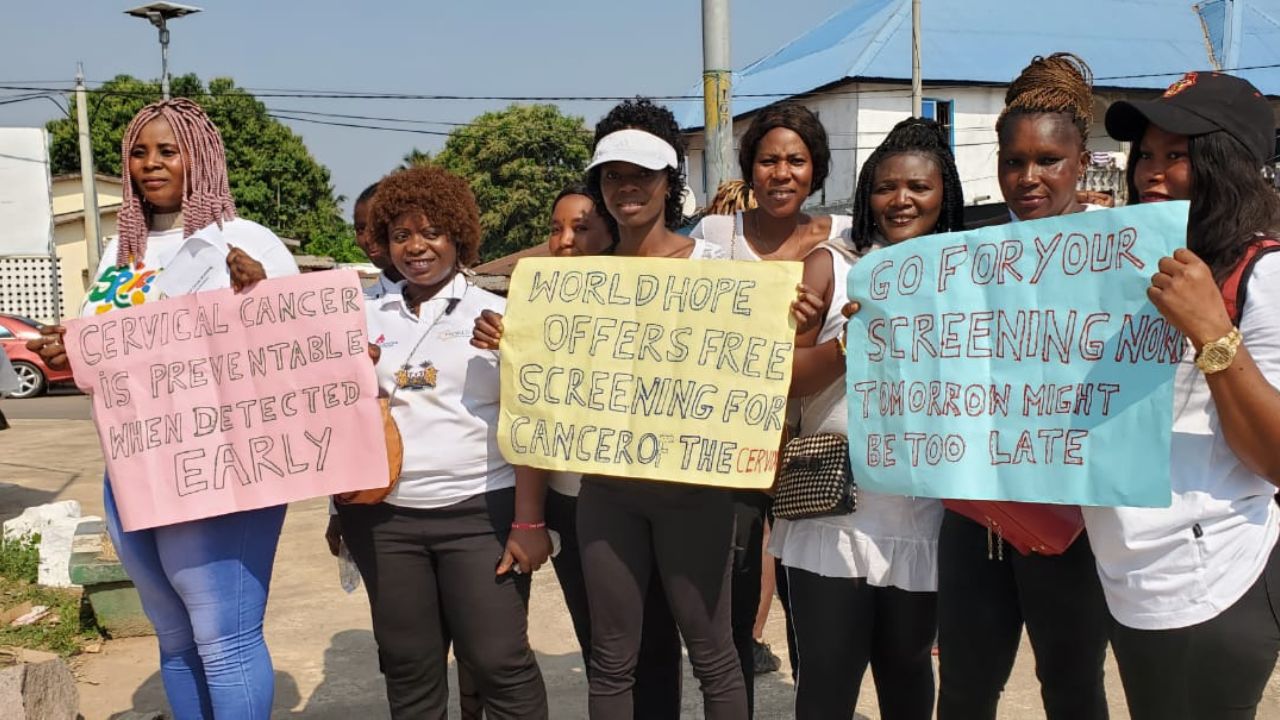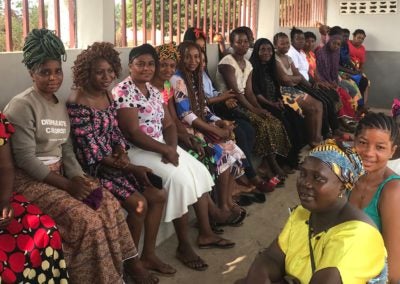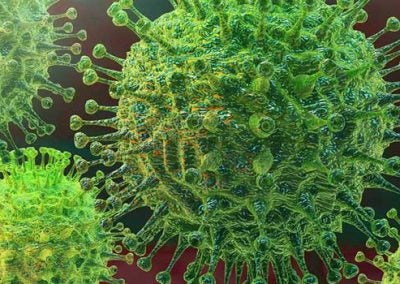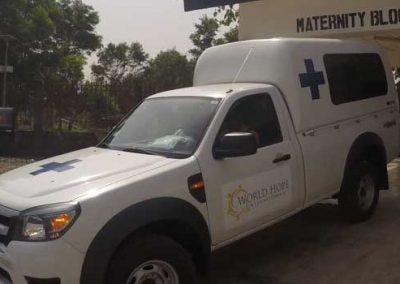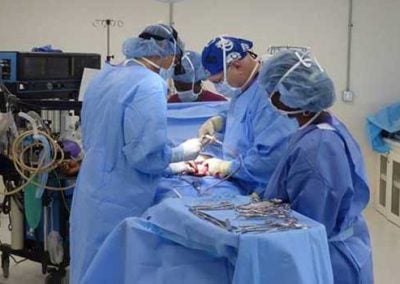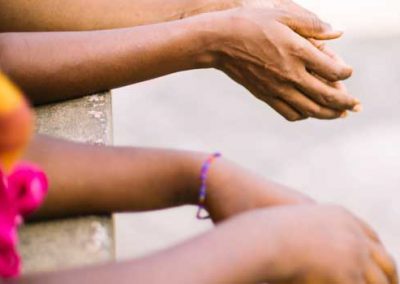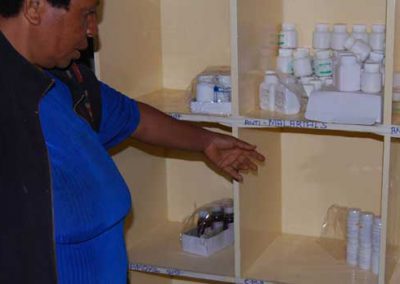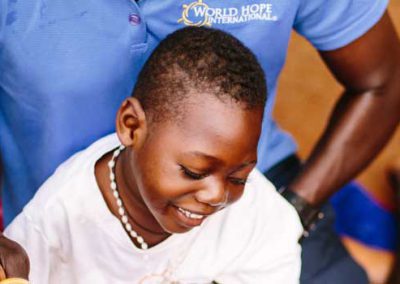Cervical Cancer Screening
A life saving community-based approach to pro-active screening and education
Cancer Screening Saves Lives
Sierra Leone has a population of over 7 million, with 2.33 million girls and women aged 15 and older who are at risk of developing cervical cancer. Though cervical cancer is one of the most preventable types of cancers, it is the second most common cancer found among women in Sierra Leone.
Almost all cervical cancer is caused by the human papillomavirus (HPV). As of early 2022, there was no option for the HPV vaccine in Sierra Leone and very limited screening services. This means, by the time cervical cancer is identified it is often too late for medical intervention. An estimated 367 out of 504 women diagnosed with cervical cancer die each year in Sierra Leone.
WHI in partnership with Female Cancer Foundation launched Sierra Leone’s first district-wide cervical cancer screening initiative in Bombali District. Using a screening method called Visual Inspection after Acetic Acid (VIA), vinegar is applied to the cervix and within minutes potentially precancerous lesions are visually identifiable. If there are any abnormalities, treatment can be done instantly using thermal ablation in which the precancerous cells are destroyed by heat. This process takes only minutes with minimal discomfort to the woman.
Project Information
Project Status: Active
Start Date: 2022
End Date: Ongoing
Country: Sierra Leone
Project Goals
-
Reduced mortality and morbidity linked to cervical cancer for women in Sierra Leone
-
Improve data on cervical cancer prevalence and risk in Sierra Leone that can guide policies and actions by the Ministry of Health and Sanitation
Global Goals

%
of women who showed signs of pre-cancer have been treated
When I heard about World Hope’s cervical cancer screening on the radio, I was compelled to do the test even though I was not feeling any pain apart from the plenty of discharge I was having. I did my test at the City Garden Hospital (ABD) where I stayed closest and was told that I have cancer in my cervix. The nurse explained to me that they cannot treat my cancer at that level, but they will refer me to Freetown where I will receive adequate care. One month later I was called by the nurse that a doctor has arrived in Freetown who can solve my problem. The hearing of the news brought hope. I told my husband and he supported me with some cash. World Hope also helped me with transportation, and I left very early on Thursday, January 26, 2023. I arrive at PCMH at around 10:00 in the morning and was given a ticket to see the doctor. I was treated and I returned that same day. I am grateful to World Hope for restoring hope to me again.
Aminata
How does it work?
Over the span of three-years, the goal of this project is to screen 50% of eligible women between the ages of 24-49 in Bombali District. Screening activities will take place at three static facilities in the capital of Bombali, Makeni City, and in Peripheral Health Units (PHUs) across the entire district. There are over 70 PHUs in Bombali, many in very remote areas, and the goal is to visit each PHU at least twice over the duration of the project.
Community sensitization is a key component to the success of this project as cervical cancer is a disease that many have not heard of. Our community mobilizer visits the community twice prior to screening, first to gain support of the community leaders and second to inform the community about upcoming screening dates. He also uses social media, such as Facebook, TikTok, WhatsApp, jingles, and radio programming to bring awareness. This project will sensitize at least half of the population of Bombali on cervical cancer risks and promote healthy behaviors. Over 140,000 people across the district will receive messaging on cervical cancer, including HPV.
To promote the sustainability of this project, WHI is coordinating with the Ministry of Health and Sanitation (MoHS) and the Bombali District Health Management Team (DHMT). As there is limited data in Sierra Leone on cervical cancer, this project will collect important data to inform cervical cancer prevalence and risk in the country.

